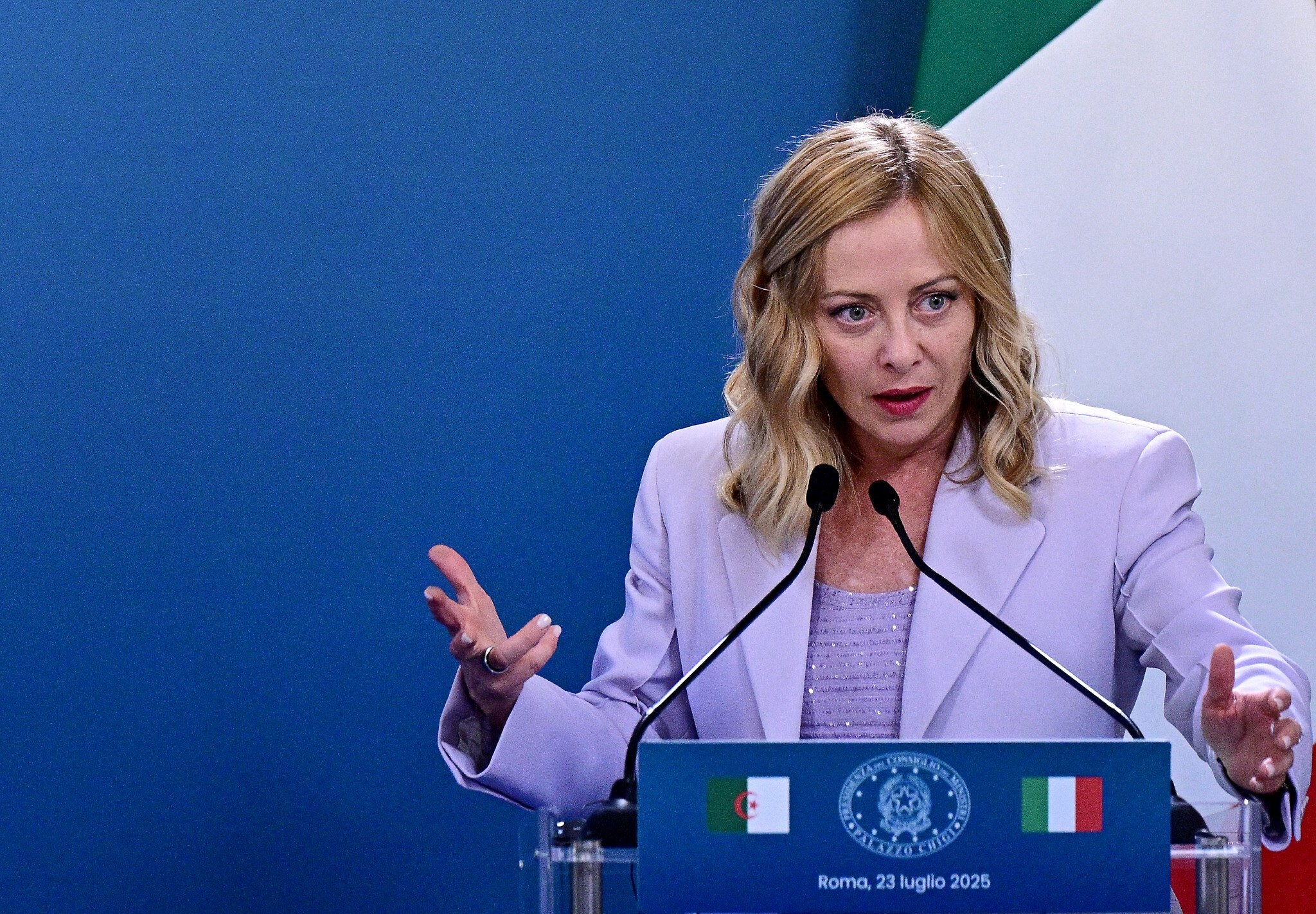Italy’s Prime Minister Giorgia Meloni on Saturday expressed a cautious stance regarding the recognition of a Palestinian state, distinguishing Italy’s position from that of France, which plans to recognize Palestine officially at the United Nations General Assembly in September 2025.
Meloni emphasized that while she supports the establishment of a Palestinian state, Italy will not recognize it before it is fully established.
She warned that premature recognition could be counterproductive and create an illusion that the conflict is resolved when it is not.
Meloni articulated her viewpoint in an interview with the Italian newspaper La Repubblica.
She stated clearly, “I am very much in favor of the State of Palestine but I am not in favor of recognizing it prior to establishing it.”
She elaborated that if something that “doesn’t exist” is recognized on paper, it risks creating a false perception of resolution, which can complicate further progress towards peace.
Her comments reflect a pragmatic outlook on one of the most contentious issues in Middle Eastern diplomacy.
They emphasize the need for tangible statehood and mutual recognition as prerequisites for formal diplomatic acknowledgment.
The background to this comes amid escalating tensions and conflict in the region, notably the recent war in Gaza between Israel and Hamas.
France’s decision to recognize a Palestinian state has drawn strong criticism from Israel and the United States, both wary of unilateral moves that could derail negotiations or exacerbate violence.
President Emmanuel Macron’s announcement to proceed with recognition.
It makes France the first Western nation on the U.N. Security Council to do so, was motivated in part by humanitarian concerns and frustration over stalled peace efforts.
However, Macron was unable to secure consensus among major Western allies, including Italy, the United Kingdom, Canada, and Germany.
Italy’s cautious approach goes hand in hand with its broader stance on the Israeli-Palestinian conflict.
Meloni has repeatedly supported the two-state solution, advocating for peaceful coexistence of Israel and Palestine “side by side in peace and security.”
She has openly disagreed with Israeli Prime Minister Benjamin Netanyahu’s rejection of the Palestinian statehood concept.
Meloni asserts Italy’s recognition of the Palestinian people’s right to an independent and secure state.
However, Meloni insists that recognition must be mutual: the Palestinian entity must also acknowledge Israel’s right to exist and live in peace and security.
Italy is not alone in its cautious approach.
Germany, another major European power, has also stated that it will not recognize the Palestinian state in the short term.
It emphasized the need for progress towards a negotiated two-state solution.
Italy’s foreign minister echoed that recognition of Palestine should be coupled with recognition of Israel by the Palestinian side.
This is a dual acknowledgment seen as vital to prevent deepening the conflict and to support a sustainable peace settlement.
Domestically and internationally, Italy’s position signals a balancing act.
On one side, Italy recognizes the legitimacy of Palestinian aspirations and supports humanitarian relief efforts in Gaza, such as the “Food for Gaza” initiative.
It also offers support for the stabilization and reconstruction of the territory.
On the other side, it insists on diplomatic prudence to avoid preempting a peace process that remains fragile and complex.
The contrast with France’s approach illustrates a broader division within Western politics regarding the timing and conditions of state recognition.
France, driven by the urgent humanitarian crisis and political frustration, has chosen a proactive and symbolic stance aimed at reaffirming Palestinian rights and pressuring for peace.
Italy, alongside Germany and some other European states, adopts a more cautious, process-driven strategy.
This strategy emphasizes mutual recognition and the actual establishment of Palestinian state institutions before formal recognition is granted.
This difference in approach reflects Italy’s desire to avoid what Meloni terms a “counterproductive” move.
By delaying recognition until the Palestinian state is fully established and meets the conditions of mutual recognition with Israel, Italy aims to ensure that its foreign policy supports a resolution.
A supposed resolution to the conflict rather than creating diplomatic complications or false illusions of peace.
In summary, Prime Minister Giorgia Meloni’s stance on Palestinian state recognition is grounded in a pragmatic and balanced diplomatic philosophy.
Italy supports Palestinian self-determination and the two-state solution.
However, it insists on simultaneity in recognition and tangible statehood as prerequisites for formal acknowledgment.
This position distances Italy from France’s upcoming unilateral recognition while aligning with the broader European caution to foster a negotiated peace.
This peace supposedly safeguards the rights and security of both Israelis and Palestinians.







